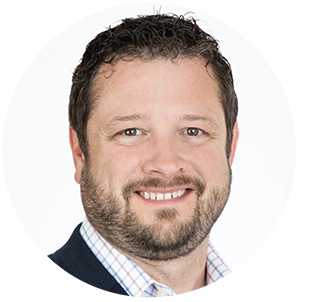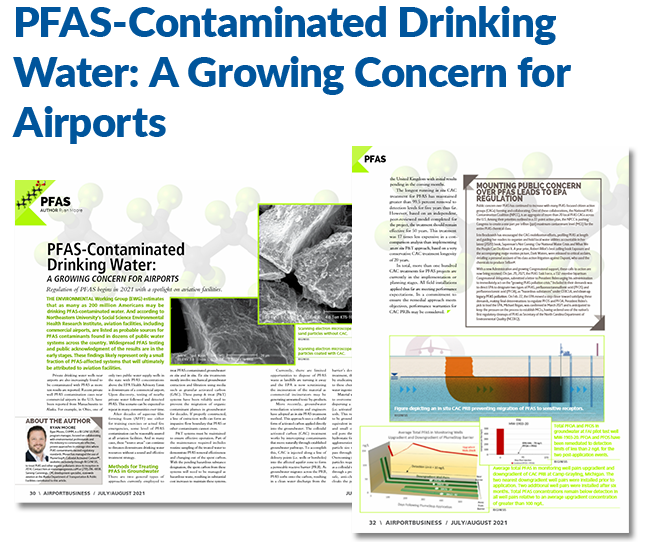This article published in Airport Business Magazine discusses why PFAS contamination in groundwater is a growing concern for airports, and the role that in situ colloidal activated carbon (CAC) treatments are playing in mitigating risk at airport facilities globally.
Article highlights:
- Methods for treating PFAS in groundwater
- In situ CAC approaches are being used at commercial and military airport sites in the US and Europe
- Mounting public concern over PFAS is leading to EPA regulation
The Environmental Working Group (EWG) estimates that as many as 200 million Americans may be drinking PFAS-contaminated water. And according to Northeastern University’s Social Science Environmental Health Research Institute, aviation facilities, including commercial airports, are listed as probable sources for PFAS contaminants found in dozens of public water systems across the country. Widespread PFAS testing and public acknowledgment of the results are in the early stages. These findings likely represent only a small fraction of PFAS-affected systems that will ultimately be attributed to aviation facilities. With increasing momentum indicating the likely designation of PFOS and PFOA as hazardous substances under CERCLA, in situ CAC applications represent a viable solution for eliminating PFAS risk at commercial airport sites.
Complete the form on this page to download the article.
About the Author:
 Ryan Moore
Ryan Moore
PFAS Program Manager, REGENESIS
Ryan Moore has 20 years of experience as an environmental project manager and laboratory account executive relating to multimedia contamination sites throughout the U.S. His experience focused on site investigations of soil and groundwater contamination, corrective action evaluations, operation & maintenance of remediation systems, large soil removal remedial projects, in situ groundwater and soil treatment, vapor intrusion assessments, environmental laboratory operations such as QA/QC evaluations, data interpretations, and business development. Ryan holds a B.S. of Environmental Studies from Manchester College, North Manchester, IN.


